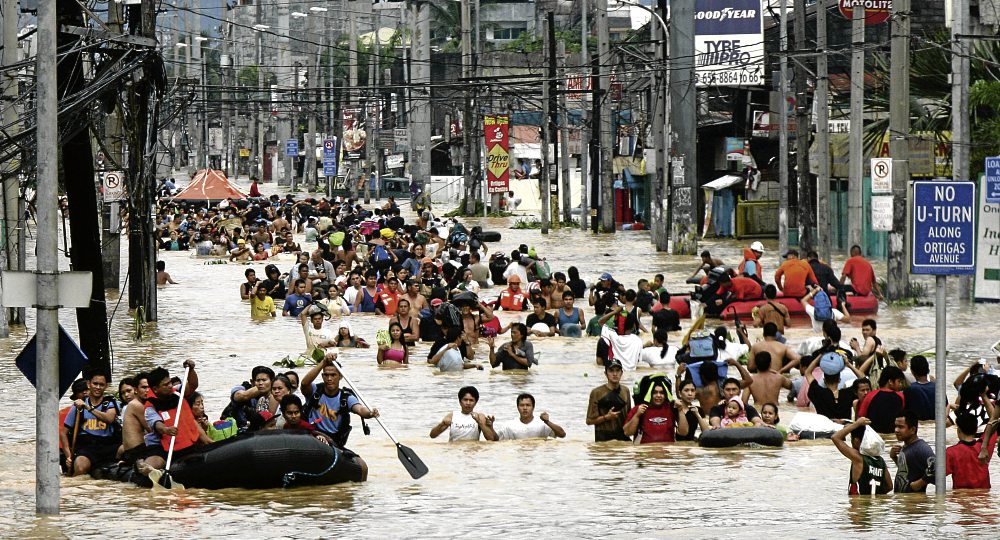ONLY TWO years before the 2015 deadline of the Millennium Development Goals, nations from all over continue to struggle to achieve Goal Seven: “Ensure Environmental Sustainability.”
For the past few weeks, several forums and visits from foreign dignitaries have emphasized the need for continued commitment and focus in environmental affairs.
Majuro Declaration
The 44th Pacific Islands Forum (PIF) was held on the island of Majuro, Marshall Islands last September 3 to 6, following climate-related catastrophes and water level upsurges around the archipelago in June of this year.
Leaders from 16 countries convened at this forum to discuss the Majuro Declaration, which appeals for immediate action regarding climate change. It calls all signatories to be leaders in an energy revolution.
Specific solutions pushed by the PIF included minimizing greenhouse gas emissions and increasing financial assistance to developing countries.
Most of the signatories are from island nations surrounding the Pacific, as these small countries are easily some of the most affected by the ever-changing climate.
“When effects are directly felt and very apparent, there is so much motivation to act urgently,” said environmental science supersenior Jean Jardeleza. She drew attention to the fact that that these island nations actually contribute quite little to the greenhouse gases that cause global warming.
She also pointed out that, according to the United States (US) Environmental Protection Agency, the US and China’s emissions alone already make up 40% of the world’s greenhouse gases.
While neither of these countries are signatories of the Majuro Declaration, the PIF considers them “dialogue partners.” Both have announced their support for the underdeveloped Pacific countries and have vowed to help them address climate issues.
“They’re that significant when it comes to reducing [greenhouse gas] emissions, which is why they also have to act urgently to mitigate climate change,” Jardeleza said.
Support from the European Union
From September 5 to 6, the European Union (EU) Commissioner for Climate Action Connie Hedegaard visited the Philippines with aims of pursuing goals similar to those held by the PIF, such as the reduction of emission and the promotion of renewable energy sources.
She was welcomed by Globe Philippines, the national chapter of the Global Legislators Organization for a Balanced Environment.
The EU has been addressing climate issues since 1991, when they first began piloting numerous programs and policies, such as the first community strategy to lower carbon emissions.
“It is my ambition to make the European Union and the Philippines partners in advancing the global climate change agenda,” Hedegaard said in a press release.
During her stay, she reportedly met with representatives from the Climate Change Commission, the Asian Development Bank, Globe Philippines and various civil society groups.
In a statement given by Chris Estallo, director of Globe Philippines, he said, “Hedegaard’s engagement with key legislators of Globe Philippines affirms the critical role of parliamentarians in climate action both in the domestic and international spheres.”
Philippine legislators who have expressed support for Globe Philippines include senators Loren Legarda, Juan Edgardo “Sonny” Angara, Nancy Binay and Gregorio Honasan.
“The 16th Congress is in the position to significantly shape a climate legacy for a better future,” Estallo added.
Philippine action?
Dr. Severino G. Salmo, III of the Department of Environmental Science affirms that many foreign institutions have been helpful to the Philippines, especially given their goal-oriented mindsets.
He pointed out, however, that the Philippines might have difficulty balancing out environmental sustainability and strong economic performance, given the continuous exploitation of the country’s natural resources.
Salmo cites the Angat Dam as an example. It is currently Metro Manila’s single most important water source, and it is also surrounded by illegal residential areas. Illegal housing along waterways is one of the main reasons given for the flooding that plagues Metro Manila during the rainy season.
“If [the Angat Dam] is a protected area, it has to be a protected area. No ifs and buts,” he said.
The lack of commitment comes not only from the government but also the citizens. Many are still able to get away from the regulations intended to preserve the natural resources in addition to attaining revenue.
Jardeleza shares this sentiment, noting that despite some of the best environmental laws and policies, there has been little success with regard to implementation.
“While the executive branch [does indeed implement] these [laws], the people should be empowered to participate in the implementation,” she said, adding that there is invaluable input coming in from various other sectors like grassroots movements and the educational sector.
“The inputs of the people from the academe will also help in assessing policies and in creating new ones,” she concluded.
Nevertheless, Salmo commended the present administration for their initiatives geared toward environmental stability. He remains optimistic that the Philippines will succeed in the world’s fight against climate change.




